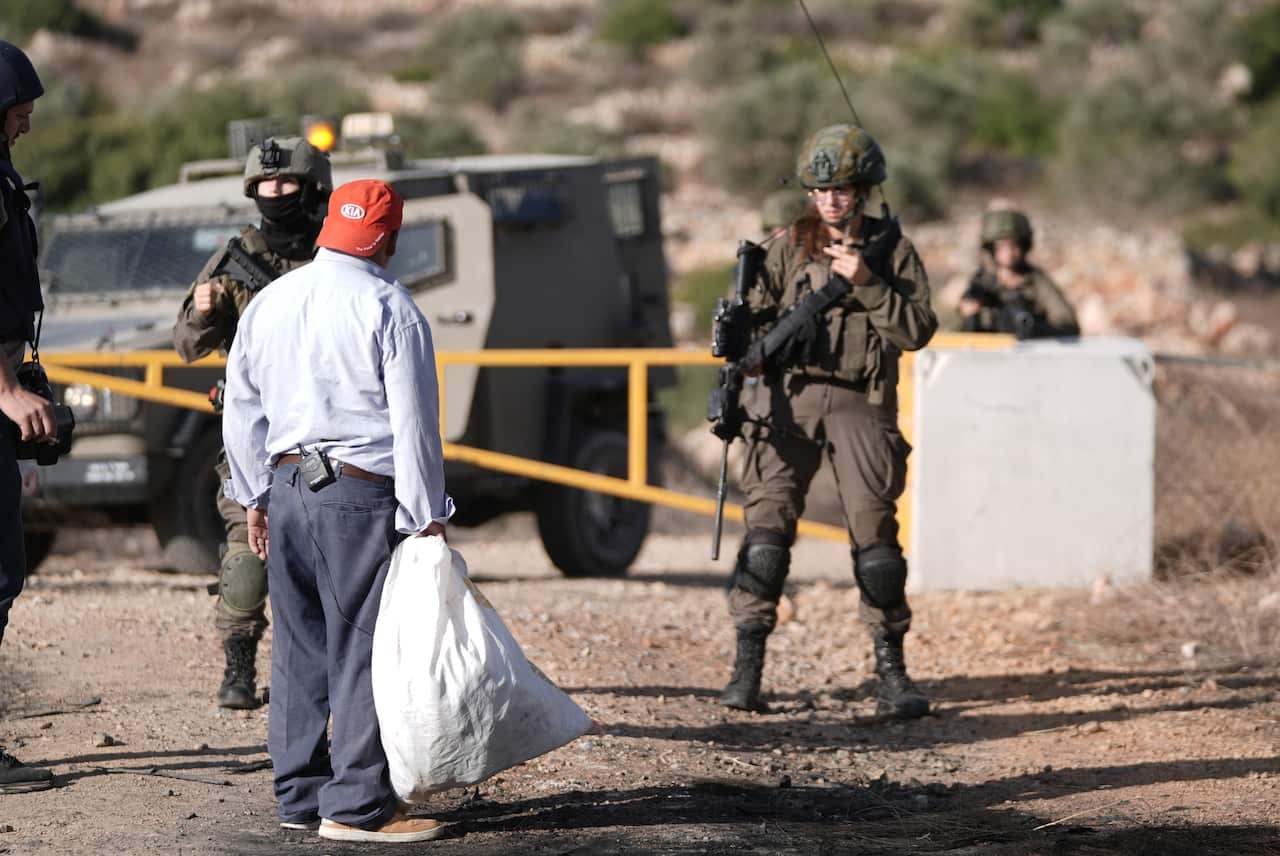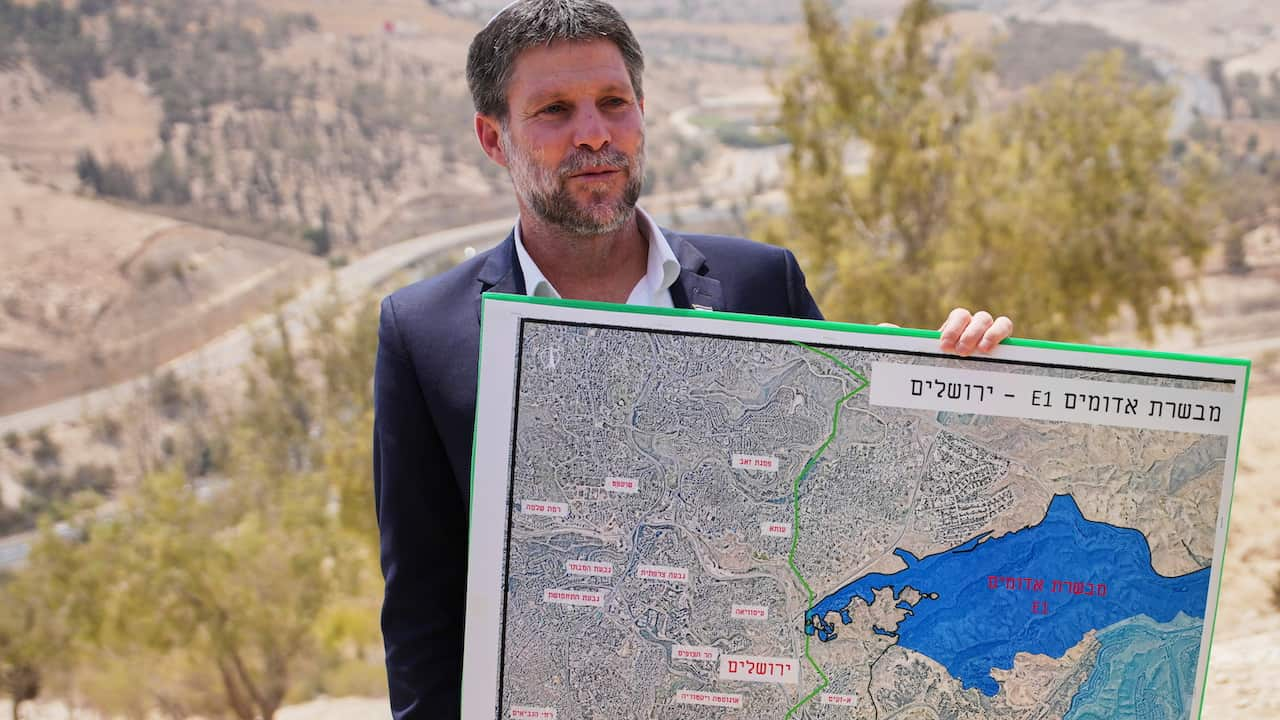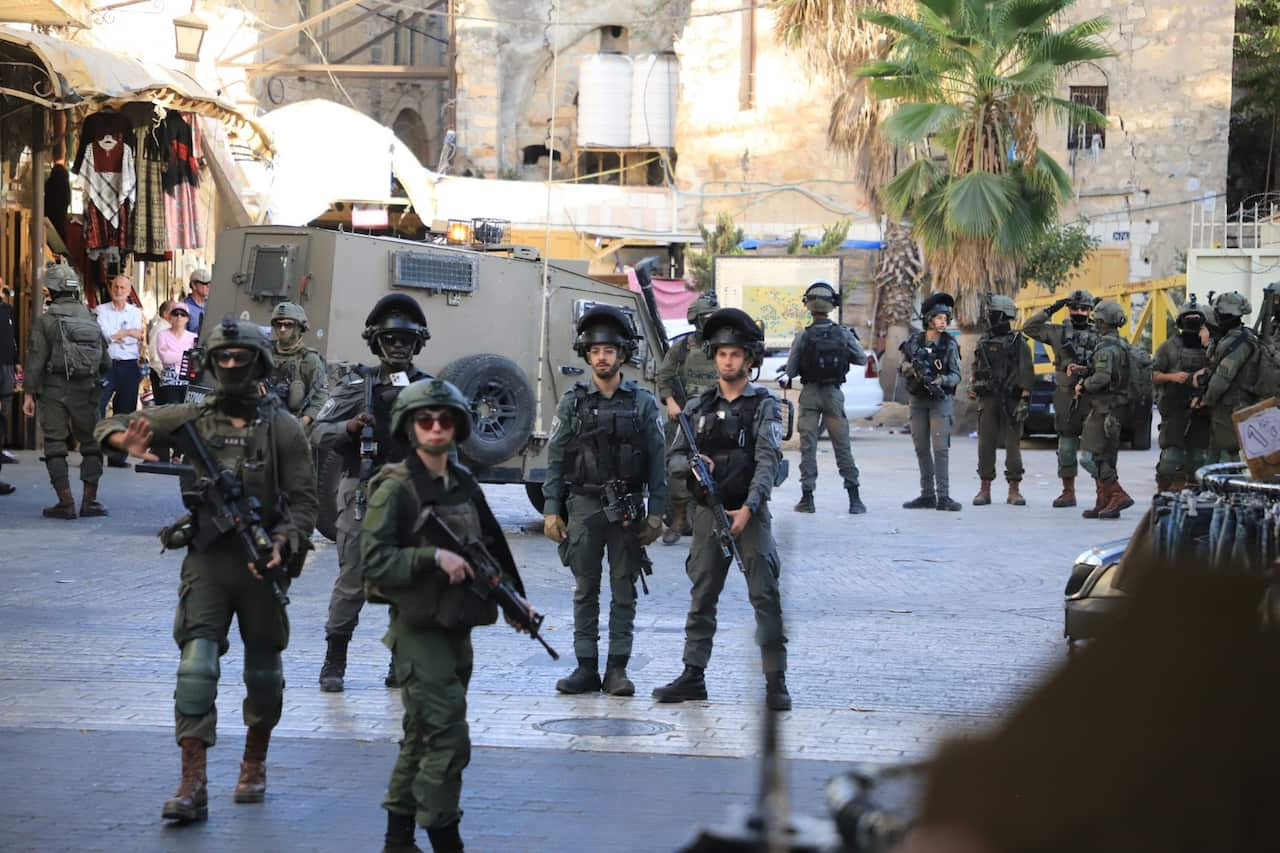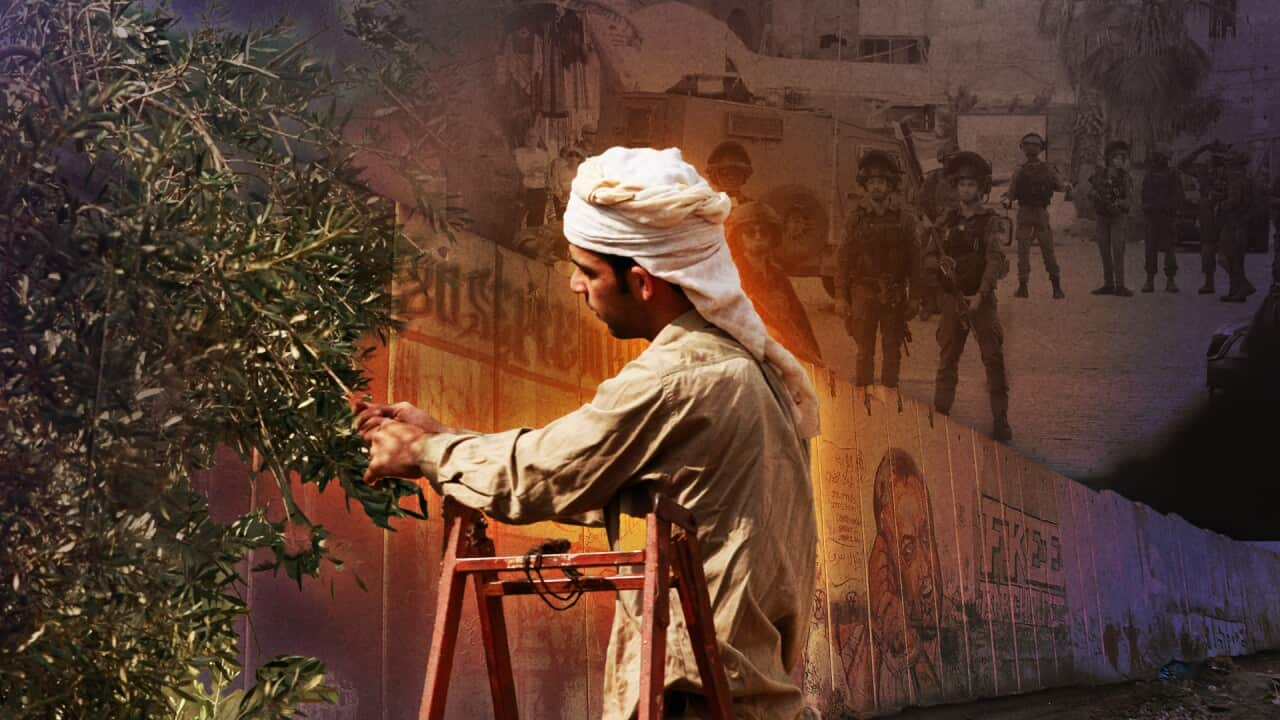The "historic dawn of a new Middle East".
That's what United States President Donald Trump touted while addressing the Israeli parliament last week.
Trump's address came after Israel and Hamas agreed to the first phase of a ceasefire in Gaza following more than two years of Israel's assault on the Palestinian enclave, which has killed more than 67,000 people and left much of it in ruins, according to Palestinian health officials.
The fragile ceasefire is part of a 20-point plan being pushed by the US to end the war in Gaza, which escalated after a Hamas-led attack on southern Israel on 7 October 2023, in which 1,200 people were killed and 250 taken hostage, according to Israeli tallies.
Something that the plan contains little mention of — one thing not explicitly laid out in the triumphant vision Trump painted in his speech to the Knesset — is the West Bank, the Palestinian territory which Israel has occupied since the Six-Day War in 1967, and which remains under Israeli military and administrative control.
Since then, Israeli settlements, considered illegal under international law, have continued to expand, and settler violence against Palestinians in the West Bank has intensified in recent years.
On Monday, the General Delegation of Palestine in Australia said Israeli settler violence had increased across the West Bank in 2025, saying there had been "over 2,900 settler attacks recorded since the beginning of the year, resulting in the killing of 33 Palestinians", citing local monitoring groups.
Martin Kear is a lecturer in international relations at the University of Sydney.
He said while the world's focus has been on the situation in Gaza, Israel's occupation had become more entrenched in the West Bank and settler violence against Palestinians had "exploded".
While the US-proposed ceasefire deal bears no relation to what's occurring in the West Bank, "we need to see the West Bank and Gaza as one, rather than two separate entities", he said.
"Anything that happens in the West Bank — settler violence against Palestinians, expansion of settlements, a more draconian occupation — will affect what's happening in Gaza, and vice versa," Kear told SBS News.
Kear said for more than 20 years, Israel had advanced a narrative that sought to separate Gaza from the West Bank.
"They do that deliberately to separate, to create this impression that the two territories are not just geographically separated, but separated in every sense," he said.
Israel's ongoing occupation of the Palestinian territories is regarded as a major roadblock to Palestinian statehood and hopes of self-determination, experts say.
Palestinian statehood has been endorsed by many Western countries amid the war in Gaza, including Australia, and is briefly mentioned towards the end of Trump's 20-point plan.
Ian Parmeter is a research scholar at the Australian National University's Centre for Arab and Islamic Studies.
He said there appeared to be "considerably more violence" by Israeli settlers against Palestinian residents of the West Bank since October 7, including "direct aggression" and attacks by Israeli settlers on olive groves, one of the primary means of livelihood for Palestinians in the territory.
The United Nations Office for the Coordination of Humanitarian Affairs (OCHA) said this month that Israeli settlers have carried out more than 7,100 attacks against Palestinians in the West Bank since October 2023.
Parmeter said it also seemed the Israel Defense Forces were "not playing a very effective role" in separating settlers who were aggressive towards Palestinians and the residents themselves.
"There's not the protection of the local population that there should be," he told SBS News.
Parmeter said it's "unrealistic" to talk about peace in the Middle East if the West Bank isn't going to be addressed, and it was presently "right out of the picture", as the penultimate item on the 20-point plan.
"[It's] essentially that, if everything goes according to plan, the Palestinian aspiration towards a separate state could be realised," he said.
The United Nations Human Rights Office in the Occupied Palestinian Territory said this month that 1,001 Palestinians had been killed in the West Bank and East Jerusalem since 7 October 2023, the majority by Israeli security forces, which it accused of the "systematic use of lethal force against Palestinians in the vast majority of cases".
That number, it said, represented 43 per cent of all Palestinians killed in the occupied West Bank in the past 20 years, and more than 200 of those killed since October 2023 were children.
The organisation said that since 7 October 2023, 59 Israelis had been killed in Palestinian attacks or armed clashes in the West Bank and Israel, including five children.
It said almost half of the 968 Palestinians killed during that time by Israeli security forces were unarmed and not involved in any violence or confrontation at the time of their killing.
The office stated 174, including 71 children, were killed while throwing stones or Molotov cocktails, "often at well-equipped and protected" Israeli security forces or vehicles.
On Friday, the Palestinian health ministry said Israeli forces shot dead an 11-year-old boy in al-Rihiya, south of Hebron in the West Bank.
The Palestinian Authority-affiliated news agency WAFA said Israeli troops had opened fire on a group of children who were playing football.
The Israeli military confirmed it had opened fire after "confrontations and rock-hurling" directed at them, saying soldiers "responded with fire towards the suspects in the rock-hurling".
A Palestinian teenager who held United States citizenship was shot dead by the army in April, followed by a 14-year-old in June in the town of Sinjil in June, and a 15-year-old in July.
On each occasion, the military alleged the youths had thrown rocks at its troops.

October is the annual olive harvest season in the West Bank — a key economic, social and cultural event for Palestinians — but attacks against Palestinians by settlers have reportedly spiked.
OCHA said on Tuesday that it had documented 71 attacks by settlers in the West Bank between 7 and 13 October, and that half were linked to the olive harvest season.
It said the incidents included attacks on farmers, theft of crops and harvesting equipment, and vandalism of olive trees.
OCHA said this month that settler-related attacks against Palestinians had steadily increased over each of the past five olive harvest seasons.
In 2024, more than 200 attacks were recorded, nearly double those in 2023 and more than three times higher than in 2022.
How many Israeli settlers are in the West Bank?
There are about 500,000 Israeli settlers in the West Bank, and another 200,000 in East Jerusalem, which Israel formally annexed in 1980.
Israel considers East Jerusalem its capital, but most countries do not recognise it as such and regard it as part of the occupied Palestinian territories.
The West Bank and East Jerusalem are also home to around three million Palestinians.
Palestinians in the West Bank face heavy restrictions on their movement, required to navigate hundreds of Israeli checkpoints, roadblocks, and permit requirements.
In May, the OCHA said more than 48,000 Palestinians had been forcibly displaced in the West Bank since the October 7 attack more than two years ago.
That included more than 6,400 Palestinians displaced following the demolition of their homes by Israel, and about 2,200 forcibly displaced by settler attacks.
In July, Israel's parliament voted in favour of annexing the West Bank to claim it as part of Israel in a symbolic, non-binding motion.
Last month, Trump said he would "not allow" Israel to annex the West Bank. "There's been enough. It's time to stop now," he told reporters.
The UN and much of the international community consider Israeli settlements in the West Bank illegal under international law, and the Geneva Convention states that an occupying power can't move its civilians into the territory it occupies.
Israel rejects the categorisation of the West Bank as occupied, instead describing it as disputed.
There are more than 140 officially recognised West Bank settlements, illegal under international law, and more than 200 outposts, which are also illegal under Israeli law, but rarely result in legal consequences.
Last year, in a landmark decision, the UN's highest court declared Israel's occupation of Palestinian territories and settlements there illegal, saying they should be withdrawn as soon as possible.
Israel's foreign ministry rejected the non-binding declaration, and earlier this year, Israel's parliament approved a plan to build a controversial settlement project in the West Bank, which would lead to the construction of more than 3,300 homes.

Critics of the E1 project, which, like all Israeli settlements in the West Bank, is considered illegal under international law, say it will essentially split the West Bank in two, break Palestinian contiguity and significantly impede the chances for a viable two-state solution.
Far-right Israeli finance minister Bezalel Smotrich, who Australia has sanctioned for inciting violence in the West Bank, said the E1 project would "definitively bury" the idea of a Palestinian state when announcing it in August.
Mohammed Azzam, a resident of Ramallah in the West Bank, said growing recognition in recent years had not led to progress for Palestinians in the West Bank.
"On the contrary, every day the settlers' attacks increase, the killing increases, the arrests increase, the raids and thefts increase, and the checkpoints fill the entire West Bank," he told Agence France-Presse last month.
"They have cut off the West Bank, its cities and villages."
Kear argues the two-state solution has been a "fallacy" since Israel's occupation in 1967, as Palestinians would not accept a state without East Jerusalem as its capital, and Israel will "never give up control" of it.

Both Kear and Parmeter brought up the continued popularity of Hamas within the West Bank.
A poll in May by the Ramallah-based Palestinian Center for Policy and Survey Research found 67 per cent of Palestinians in the West Bank expressed satisfaction with Hamas' performance, compared to 43 per cent in the Gaza Strip.
Kear attributed Hamas' continued popularity in the West Bank to being "the only Palestinian movement that resists Israel's occupation".
Amid rising settler violence, ongoing settler expansion, and support for West Bank annexation among some Israeli government members, coupled with many unanswered questions about the future of the occupied Palestinian territories in Trump's plan for a "new dawn" in the Middle East, prospects for a peaceful resolution in the West Bank remain elusive.
— With additional reporting by Agence France-Presse
For the latest from SBS News, download our app and subscribe to our newsletter.

